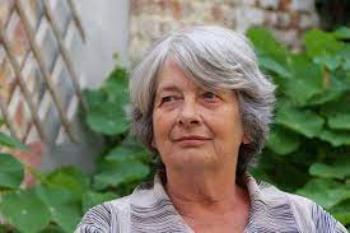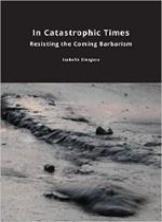(opens in a new window)John Barry is Professor of Green Political Economy, Co-Chair Belfast Climate Commission, School of History, Anthropology, Philosophy and Politics, Queen's University Belfast
The presentation focused on the role and potential of art, imagination and creativity in helping us understand and respond in positive ways to the climate and ecological crisis. While there is a role for science and technology, there are limits to scientific-expert and technological modes of both understanding and communicating the ‘polycrisis’ now unfolding and being experienced by planet, people and places. Is one of the reasons why we do not see enough citizen or popular pressure on governments for more urgent action on the planetary emergency the fact that it lacks a compelling ‘story’? That the dominant science-based ways we see it being communicated in the media, in politics etc. does not constitute a narrative that connects with their values, aspirations and lives? Or is it that the narrative of ‘crisis’ and ‘emergency’ itself is a barrier to action? Alternatively, is ‘telling the truth’ about the state of the world, not matter how negative, both honest and liberating? Or what of the comforting (if dangerous) narrative that ‘technology will save us’? Can imaginative literature, art, poetry, plays and other forms of creative modes of expression have a role, to engage more people, to inspire more people, to mobilise more people to understand the causes, consequences and solutions to our climate and ecological emergency? Is the difficulty responding to the planetary crisis indicative of a deeper cultural crisis? A crisis of creativity and imagination as much as one rooted in the structure of economy and ways of life?
John Barry is a father, a recovering politician and Professor of Green Political Economy at Queens University Belfast. He is also co-chair of the Belfast Climate Commission.
What keeps him awake at night is the life opportunities and future wellbeing of his and other children in this age of the planetary crisis, and why it is easier for most people to believe in the end of the world than the end of capitalism and economic growth. His areas of academic research include post-growth and heterodox political economy; the politics, policy and political economy of climate breakdown and climate resilience; socio-technical analyses of low carbon just energy and sustainability transitions; and the overlap between conflict transformation and these sustainability and energy transitions. His last book was The Politics of Actually Existing Unsustainability: Human Flourishing in a Climate-Changed, Carbon-Constrained World (2012, Oxford University Press).
 philosopher, noted for her contribution to the philosophy of science. Stengers has authored and co-authored more than twenty-five books and two hundred articles, exploring science as a diverse and independent system that, through specific practices and processes, helps shape truths instead of rediscovering preexisting ones. In the 1970s and 1980s, she worked with Nobel Prize recipient Ilya Prigogine, with whom she wrote
philosopher, noted for her contribution to the philosophy of science. Stengers has authored and co-authored more than twenty-five books and two hundred articles, exploring science as a diverse and independent system that, through specific practices and processes, helps shape truths instead of rediscovering preexisting ones. In the 1970s and 1980s, she worked with Nobel Prize recipient Ilya Prigogine, with whom she wrote 